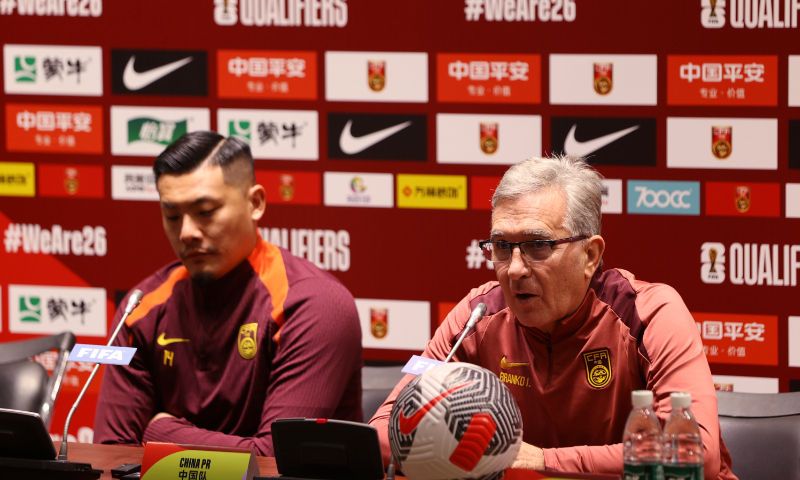Trusting youth over short-term fixes: a solution for Chinese soccer

In a tense series of events, the Chinese national soccer team narrowly secured their place in the third round of the World Cup Asian qualifiers and earned a spot in the 2027 AFC Asian Cup finals. This outcome, however, was not achieved through their own triumphs but rather by relying on the failure of others.
While the relief among players and fans is palpable, the journey to this point has highlighted several critical issues within Chinese soccer that demand attention. Branko Ivankovic, the head coach, has made some commendable adjustments.
His willingness to trust new talents like Baihelamu Abuduwaili, Xie Wenlong, and Yang Zexiang is particularly noteworthy. Yet, despite these positive steps, Ivankovic's performance has not significantly outshone that of his predecessor, Aleksandar Jankovic, raising questions about the long-term strategy of the Chinese Football Association (CFA).
The rapid dismissal of Jankovic after the team's failure to advance from the Asian Cup group stage earlier this year underscores a reactive rather than strategic approach by the CFA. This cycle of hiring and firing coaches without substantial introspection into systemic issues only perpetuates instability and hinders progress.
Ivankovic, though yet to be confirmed by the CFA, is likely to be tasked with steering China through the crucial 18-team stage of the World Cup Asian qualifiers, meaning that he faces immense pressure. The reality is that qualifying for the World Cup remains a distant dream given the current state of Chinese soccer. Instead, the focus should be on building a resilient, cohesive team capable of competing at a higher level. This requires faith in Ivankovic's professional judgment and commitment to a long-term developmental strategy, particularly one that emphasizes youth.
Historically, Chinese soccer has often relied on veteran players with supposed experience, only to fall short repeatedly. The failure to capitalize on opportunities for generational renewal has left China fielding some of the eldest squads in recent tournaments, with declining tactical and technical prowess. This misstep has not only stalled progress but also fueled ongoing criticism about the inadequacies of China's youth training systems.
The 30-year-old Yang's debut against South Korea, despite his age and the high stakes, was a testament to the potential within lesser-known players. His solid performance under pressure suggests that China does not lack talents but rather the courage to nurture and trust them. Players like Baihelamu and Xie, who demonstrate a willingness to execute tactics and give their all on the pitch, embody the spirit needed to revitalize Chinese soccer.
Ivankovic's tenure could be a pivotal turning point if he continues to integrate young, energetic players into the squad. The success of China's under-19 national team against their South Korean counterparts highlights the effectiveness of disciplined, hardworking young players. The likes of Wang Yudong, whose tenacity and defensive commitment were crucial in the youth matches, must be given opportunities at the senior level.
Moreover, the temptation to revert to naturalizing foreign players as a quick fix should not be listed as a priority. Previous attempts at using naturalized players have not yielded sustainable success and have often been criticized as short-sighted and emblematic of a lack of faith in domestic talents. The resources spent on these players could be better invested in developing local youth, fostering a sense of national pride and continuity.
Chinese soccer's path forward lies in recognizing and learning from its past mistakes. An overreliance on experienced veterans and naturalized players has only provided temporary relief without addressing underlying issues. True progress will come from investing in the next generation, allowing them to grow and compete on the international stage. Ivankovic's willingness to trust younger players is a positive step, but it requires the full support of the CFA with a commitment to a long-term vision.